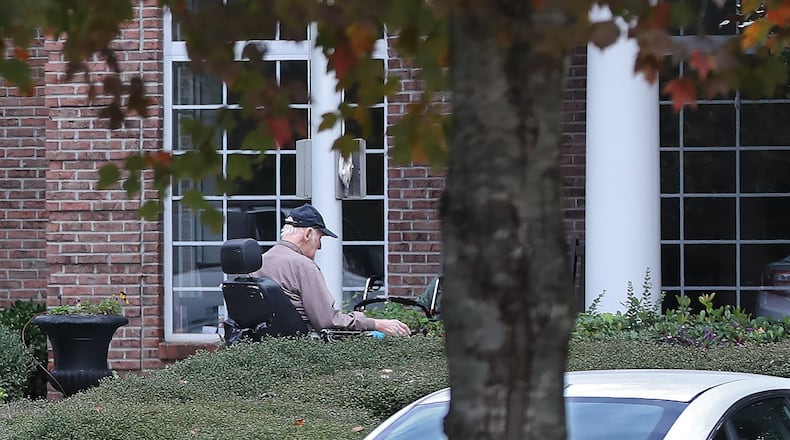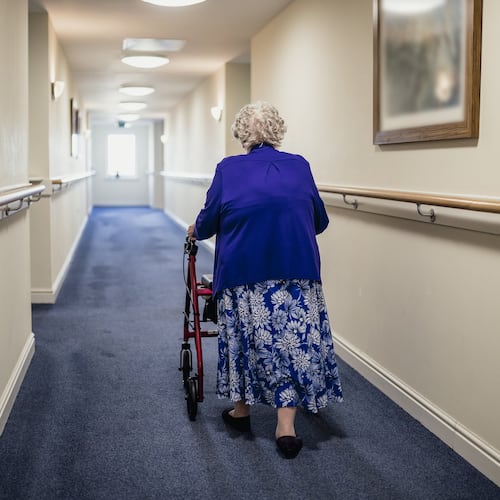Advocates for the elderly made a public appeal to Georgia lawmakers Thursday to fund improvements to oversight of the state’s assisted living and personal care home industry.
The comments came as advocates seem increasingly anxious that the state budget squeeze could dampen efforts for meaningful reform to protect some of Georgia's most vulnerable adults. The state's lax oversight of the rapidly expanding senior care industry was a focus of an Atlanta Journal-Constitution investigation last fall that revealed hundreds cases of neglect and abuse in a system that has kept the public in the dark about problems.
“We think it’s incumbent on the legislature to react to all this information,” said Kathy Floyd, the executive director of the Georgia Council on Aging, a state advocacy group created by the legislature to advise lawmakers on policy.
Floyd made her statements in a public hearing before the House Appropriations Health subcommittee on Thursday. The Department of Community Health, which licenses and inspects an array of health-related facilities including senior care homes, has been presenting its budget to the committee.
The Georgia Chapter of the Alzheimer’s Association said state regulators need more funding to ensure these facilities adequately care for seniors. MaryLea Boatwright Quinn, the organization’s director of government affairs, said that 42 percent of residents living in senior care facilities have been diagnosed with Alzheimer’s. The number is higher when considering those with other types of dementia and those living with dementia who have not been diagnosed.
Families facing the difficult decision to place a loved one in a facility deserve to know it can provide adequate care, she said.
“They should be confident that a setting licensed by our state is a safe, dementia-capable setting for their loved one to live,” she said.
In addition to allocating more money to improve oversight of the facilities, she said the state needs to ensure training requirements for providers and regulators are adequate to meet the care needs of people with Alzheimer’s and other dementia.
Floyd echoed those concerns. She urged lawmakers to consider funding additional inspectors for the department to help increase oversight. She testified that DCH officials reported 14 months ago that it had 21 surveyors, less than half the 49 needed to cover 2,675 state-licensed care facilities across Georgia, including assisted living communities and personal care homes. In budget hearings, DCH officials have downplayed this problem, instead focusing on a shortage of inspectors for nursing homes.
Without adequate surveyors to inspect the assisted living and personal care homes, the state can't conduct timely inspections and inspection reports the public needs to evaluate quality of care are outdated, Floyd said. She said funds are also needed to make sure aggregate data is collected and reported to spot trends that could be harming the public and to ensure the state's regulatory website is useful to consumers.
“If consumers don’t have current information, they are handicapped,” she said, adding later that some consumers are now afraid to go in assisted living because of all the problems that have been exposed. “We really would like to see this legislature make a statement and show consumers that these issues are being addressed.”
OUR REPORTING
The Atlanta Journal-Constitution has been investigating Georgia's senior care housing industry for the past year and began publishing its findings in September. The AJC found more than 600 cases of neglect and some 90 cases of abuse across a system of roughly 400 facilities between 2015 and 2018. Gov. Brian Kemp, lawmakers and the public have all called for change, including increased inspections, but Kemp's proposed budget does not allocate more money for the agency that regulates senior care homes. The AJC investigation is online at ajc.com/unprotected.
Keep Reading
The Latest
Featured





